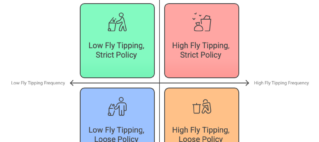Hiring executives in small to medium companies, particularly startups, presents a unique set of challenges that arise from the inherent characteristics of these organisations. These top five challenges are often only recognised after a few executives fail to deliver the expected results:
- Undefined Roles: Due to their size, small companies often have fluid roles that can change and evolve quickly. This lack of clarity can be a challenge when hiring executives, who might be accustomed to well-defined responsibilities and expectations.
- Culture Fit: Small companies often have unique, close-knit cultures. Finding an executive who can fit into and lead within this culture while driving necessary changes can be challenging.
- Limited Internal Resources for Hiring: Unlike large companies, small businesses may not have dedicated HR teams or executive search consultants, making the process of finding and vetting potential executives more challenging.
- Risk Management: Startups and small businesses often entail greater risk compared to established companies, which can deter some potential executives who prefer more stable employment.
- Lack of Established Processes: In small companies, governance, decision-making procedures, and leadership structures may not be firmly established. This can make it challenging to onboard new executives and clearly define their roles and expectations.
Undefined Roles
The concept of undefined or fluid roles in a small company, particularly startups, arises from the dynamic and evolving nature of these organisations. In the early stages of a company’s growth, responsibilities often overlap, change, and expand rapidly as the business identifies its needs and refines its focus. Job descriptions and roles that are clearly delineated in larger, more mature companies are often blurred in smaller organisations.
When it comes to hiring executives in this environment, the challenge is multifaceted. First, it can be difficult to specify the responsibilities of the role in the job description because the needs and demands of the company are constantly evolving. This can make it hard to attract the right candidates who understand and are prepared for the role’s dynamic nature.
Second, the fluidity of roles may necessitate executives to take on tasks that are typically beyond the traditional scope of their position. For instance, a CEO in a startup might be involved in product development, sales, and even customer support, whereas, in a larger organisation, these functions would be handled by separate departments.
Finally, such fluidity can also create confusion and potential conflict within the organisation. Without clearly defined roles, there can be overlap in responsibilities, which can lead to friction or gaps in management.
Culture fit
Culture fit is another important consideration for any company when hiring, but it becomes especially critical for small companies and startups. In smaller organisations, each team member, particularly those at the executive level, has a significant impact on the overall culture due to the close-knit nature of the team.
“Cultural fit” refers to the alignment of an individual’s beliefs, values, and behaviours with the core values, norms, and practices of the organisation. It goes beyond just getting along with the team; it’s about thinking and working in ways that align with the company’s mission, vision, and values.
For small businesses, hiring an executive who doesn’t fit the culture can have serious repercussions. It can disrupt the existing team dynamic, lower morale, and even impact productivity. Given their leadership position, executives play a significant role in shaping and maintaining the culture. If their leadership style or values conflict with the existing culture, it could cause confusion and tension within the team.
However, finding the right cultural fit can be a challenge. On one hand, it’s crucial to find someone who aligns with the current culture to maintain harmony and continuity. On the other hand, as companies evolve and grow, they may need to shift aspects of their culture to reach the next level. This requires an executive who not only fits with the existing culture but can also help drive the desired cultural evolution.
Hiring for cultural fit also doesn’t mean seeking homogeneous teams. Successful teams often benefit from a diversity of perspectives united by shared goals and values.
Risk management
Risk management is an integral consideration when hiring executives in a small company context too. For both the company and the potential executive, engaging in a leadership role at a smaller firm or startup comes with a unique set of risks that differ from those in established companies.
For the potential executive, the stability of the role may be a concern. Small companies, particularly startups, often operate in uncertain environments. Market dynamics, cash flow issues, and the pressures of scaling can pose a risk to the company’s survival. For an executive coming from a stable role in an established company, the risk of job loss or the company failing can be a deterrent. This uncertainty can also impact compensation, particularly when a portion is tied to company performance or offered in equity.
From the company’s perspective, hiring an executive is a significant investment, both financially and in terms of the company’s direction. An ineffective executive hire can be costly and disruptive, possibly setting the company back significantly. If the executive is unable to navigate the unique challenges of the company, fails to fit into the company culture, or cannot handle the ambiguity and risk associated with the role, it can lead to detrimental consequences for the company’s performance and morale.
Undefined Processes
In the early stages of a small company or startup, processes and structures are often not well-defined. This lack of established processes extends to many areas, from decision-making and reporting structures to performance evaluation, communication channels, and operational procedures. These elements tend to be more fluid in a smaller organisation, evolving as the company grows and learns.
When it comes to hiring new executives, this lack of well-established processes can present several challenges. Firstly, ambiguity can make it difficult to define the executive’s role and responsibilities, which can lead to confusion and ineffective leadership. The new executive will often need to contribute to setting up these processes, which requires a level of expertise and foresight that must be accounted for during the hiring process.
Secondly, the lack of formal processes can make the onboarding and integration of the new executive more difficult. Without a structured onboarding process, the executive may struggle to understand their role, the team dynamics, and how to make a meaningful contribution to the company.
Thirdly, decision-making in small companies can often be informal and fast-paced, which can be challenging for an executive used to more structured, hierarchical environments. They may struggle to adapt to the pace and approach to decision-making, which can impact their effectiveness.
The lack of established processes can sometimes lead to issues of accountability and transparency. Without clear reporting lines or performance metrics, it can be challenging to evaluate the executive’s performance and provide them with constructive feedback.
Undefined processes also exacerbate the HR capability for hiring new executives.
What to do?
In some sense, it would be exciting to be able to hire an executive who has the skills to build the role as the company evolves. The problem with this type of executive is that they are more like founders than they are long-term executives. The initial flurry of excitement that this type of individual brings often turns into power struggles with the existing founders as they wrestle for company direction and power.
SMEs would benefit greatly from being able to identify the capabilities needed for their new executive role and then be in a position to test these identified capabilities, tweak them, document them and then hire the right executive. Some of the capabilities that need to be quantified and understood in the context of the company are:
- Adaptability: The ability to adapt to rapidly changing conditions and responsibilities is key. As small companies grow, executives will need to be comfortable with evolving their roles and responsibilities to meet the company’s needs.
- Strategic Thinking: Executives should be capable of understanding the company’s business model and market, and be able to set and execute a strategic direction to drive growth.
- Leadership: The executive must be able to motivate and inspire the team, build a positive culture, and effectively manage team dynamics, especially during periods of uncertainty and change.
- Operational Excellence: Understanding how to optimise operations, increase efficiency, and manage resources effectively is crucial, especially given the resource constraints typical of small companies.
- Decision Making: Executives in small companies often need to make quick decisions with limited information. Therefore, they should be comfortable operating under uncertainty and taking calculated risks.
- Communication Skills: Given the close-knit nature of small companies, effective communication skills are essential. The executive will need to articulate their ideas clearly, listen to others, and facilitate open and constructive dialogue.
- Problem-Solving: The executive should be adept at identifying problems, analyzing potential solutions, and taking decisive action to resolve issues.
- Flexibility: The executive should be comfortable wearing multiple hats and performing a range of tasks that may fall outside of a traditional executive’s role in a larger company.
- Building and Scaling Processes: The executive should have experience or aptitude in building structures and processes in a growing business, and be able to balance this need with maintaining the agility of the organisation.
- Resilience: The ability to handle stress, overcome setbacks, and remain focused on the company’s goals in the face of adversity is a critical attribute. Imparting this resilience to the organisation is also a skill that is needed.
- Cultural Sensitivity: The executive needs to understand the existing company culture, fit within it, and, if necessary, drive its evolution without causing unnecessary disruption.
There are a multitude of ways to tackle the problem of defining and developing these capabilities within your company and your potential executives. Please feel free to give us a call and discuss your requirements.




